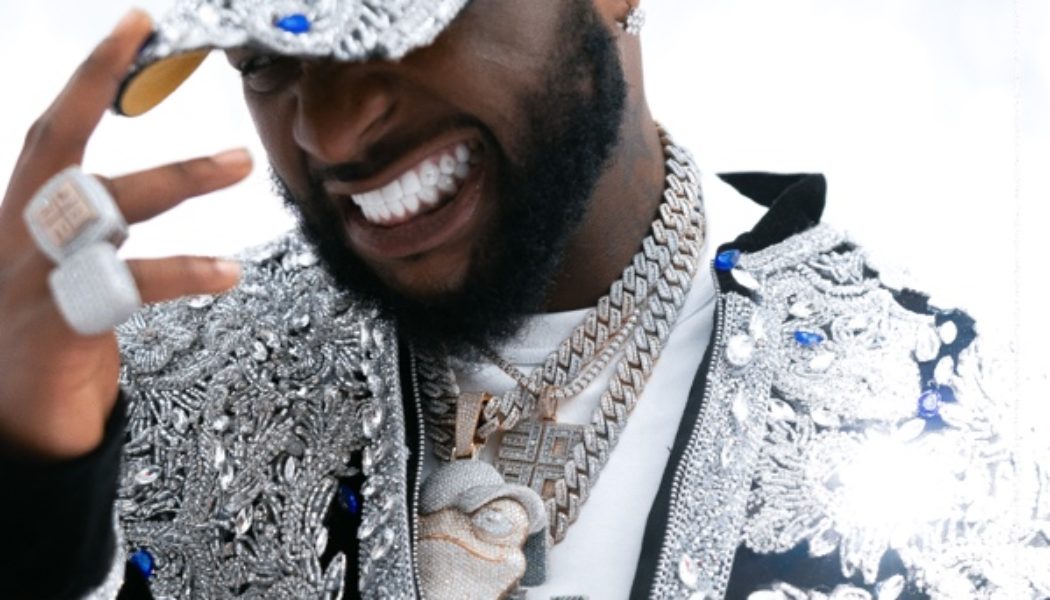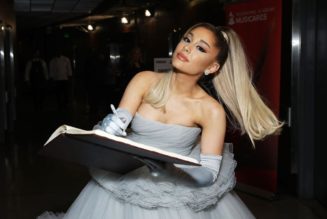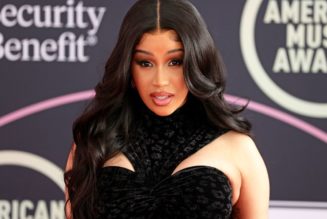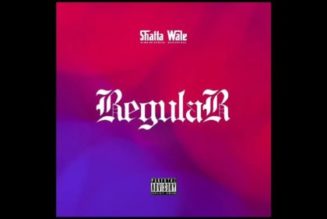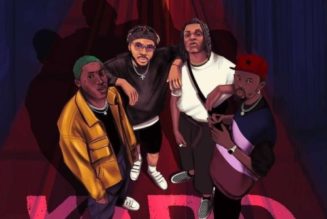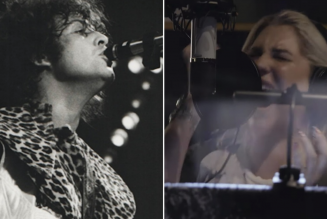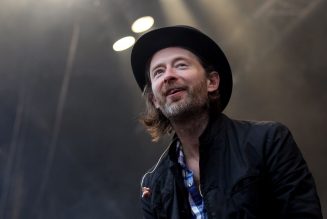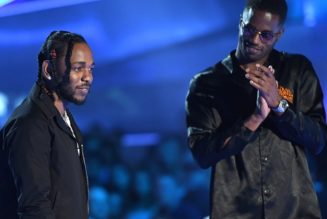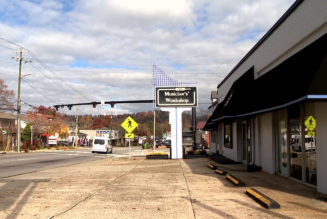Davido, born David Adedeji Adeleke and known as one of the most prominent figures in the Afrobeat and Afropop music scenes, has made an impact with his catchy tunes and energetic performances. Rising to fame with his debut single “Dami Duro” in 2011, he has since become a global music sensation, praised for his distinctive voice, charisma and contributions to the fusion of African and international musical styles. Davido has songs known to get the party started, from “Unavailable” and “Fall” to “If”, and more. Beyond his musical success, Davido is also recognized for his philanthropy and entrepreneurial ventures, solidifying his status as the cultural icon he is today.
In an exclusive interview, Davido engages in a conversation with EBONY about Afrobeat culture and reflecting on the groundbreaking moment of receiving three Grammy nominations. As a pioneer in the genre and often hailed as the king of Afrobeat, Davido shares his thoughts on the cultural impact of African music and its global reception.
EBONY: How has the experience of returning to your home country to represent its culture before coming back to the United States contributed to the growth of your artistic abilities over the years?
Davido: Music is a universal language first of all, but I’m being influenced a lot by my African culture but I tried to infuse all types of music in my music. If you listen to it, it’s all African and stuff but different styles. I grew up listening to R&B. I was a big Usher fan. I used to listen to rap so I feel like it all influenced me in a way, and even though I ended up doing Afro-African music, I feel like every genre has influenced me.
How do you feel about the current reception that Afrobeat has been getting worldwide over the past years?
To be honest, I always knew back home, even back when I was in college. I used to play African music for my American friends and they loved it. I always knew that if they ever got an opportunity to listen to African music they would like it. We have social media now and it’s easier to find stuff. It’s easier to connect the two cultures. The two cultures are the Western culture and African culture. So I feel like Afrobeat is that bridge right now that’s really bridging the gap between the two cultures and bringing both cultures together.
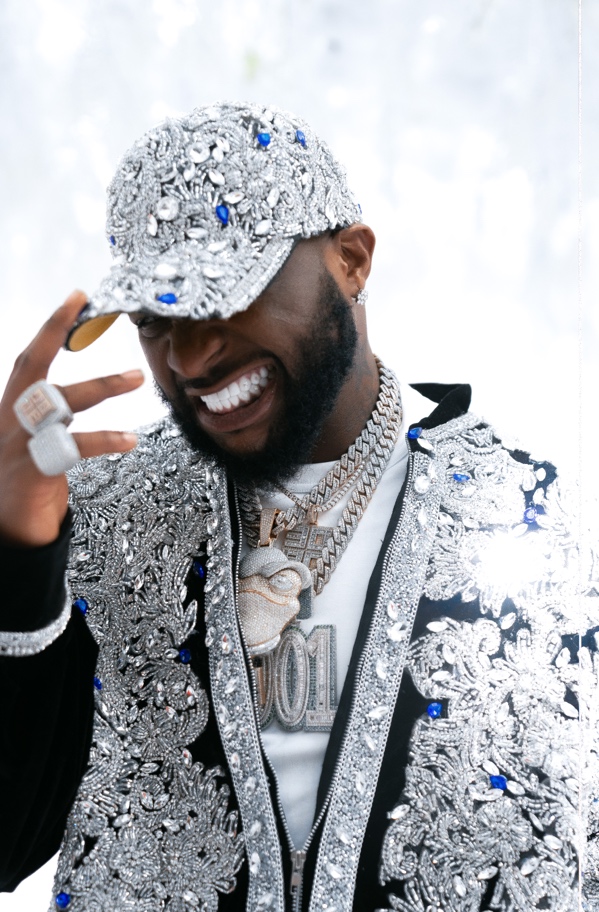
Let’s talk about “Timeless”. Biggest African album in Apple History. What’s the difference between calling certain records “African Music” compared to other genres like Highlife, Igbo music, Afrobeat, and Dancehall?
That’s the thing. Afrobeat right now is a general term used to describe African music. So for example, we got rappers back home in Nigeria, that do Hip-Hop. You’ll be like, oh they’re from Nigeria. When they come out they’re still gonna say they’re Afrobeat artists. I don’t think it’s a kind of music, I think it’s a general term now that they used to describe us African musicians. I don’t think it’s a type of sound but originally Afrobeat is a type of sound of African music. Afrobeat is a sound that Fela started, Fela Kuti. It’s a certain type of music but then, in the UK, when I think D’banj had Oliver Twists going on, they were looking for a term to describe African music and they just went with Afrobeat and I’m not mad at it, to be honest.
“Unavailable” has taken over the airways and social media. Did you expect the dance to become such a viral moment online, even at parties?
Oh, when I first made the record. I’ve been doing this for a while so when I’m making an album now I’m intentional. Definitely, I really wanted to make good music but I also wanted one or two records to be like commercial records, you always need that commercial record to catch everybody’s attention. Whichever way you want to call it. When we made “Unavailable” I wanted people to feel unreachable. You want to feel like any song that makes you feel like you’re wanted or that makes you feel special. Yeah, so that was kind of the vibe me and the producer were going for, and then we shot the video. There was nothing planned and then [a dancer] came like oh, she has this idea for a dance. I am not a dancing type of person. So I was kind of reluctant but I was like let’s try it and then we did it, then it went crazy.
It’s crazy because every time it comes on at a party the whole energy changes.
It went crazy and it’s also amazing to just see a young girl from South Africa do a dance at my video shoot and then it just blows all over the world. That’s just like the power of social media. All these things like TikTok, Twitter, and Instagram are tools that connect us. You can go online now, go on YouTube or whatever, and type in African dances 2024, African dances 2023, you see Beyonce on the Renaissance tour doing some African dances. She probably saw it on the internet. It’s a good time for not only music, it’s a good time for the culture as a whole. I’m talking about food. You walk around New York, you walk around Atlanta, African restaurants everywhere. I’m talking about clubs and African parties. It’s crazy. You have the big venues now giving us opportunities to perform and do our tours there. You got big companies like Live Nation, doing collaborations with African promoters and bringing young African artists over here to perform and do tours. I mean, the list goes on.
How does it feel to be recognized as a Grammy-nominated artist, having received three nominations?
Crazy man. It’s my 12th year with four albums in. Yeah, and it’s crazy because not to play my other albums, but it just showed me like this last album when we were making it I was like, ‘Yo, we got to lock in. I can’t mess around with this one.’ The music has always been there for me but it comes to other things being intentional about the culture and it just made a difference. For the past two years, we always tuned into the Grammy live stream to see because you don’t know the Grammys. The label will say just watch it in case. So I was just chilling in the crib. I’m not trying to watch it for real because I got anxiety. I’m not watching and then my wife just comes in like oh, three, I’m like three what, like three nominations. I’m like, what? My manager called me like, Yo, we got three. My Dad called me and then social media was just going crazy. From back home a lot of people have been supporting me to be nominated for a Grammy because they know how much work I’ve put in for the culture, and just for global music as a whole. Some people do way better than me and never get nominated, and never even get recognized. So I’m just grateful to God to be alive and called now a Grammy-nominated artist.
In what ways do you think this recognition impacts your career and the music industry at large?
I’d be lying saying it’s not a great thing for us, it’s not a game changer. This is the biggest accolade in music ever, so it feels good not only for me, it feels good for everybody who was on the project, they automatically become Grammy nominees as well. It’s good having your work bless other people. I’m talking about not only the artists that are featured, I’m talking about the producers, the engineers, to the people who worked on the creative directions, so it’s dope.
How does it feel to be often referred to as the “King” of your genre? Do you see this title as a source of inspiration or added pressure in your artistic journey?
We worked hard, man. Twelve, thirteen years selling the gospel. I wouldn’t say they’re lying but they’re other key players in the game that have been pushing the culture even before I came in. I’m just happy that our music is being recognized as a whole. I’m not really into individual praise. I’d rather all of us be praised. Everybody’s a king in their own way, definitely, we are at the top doing our thing and we just thank God for keeping us on our feet. Keeping everybody happy for this long and we are just about to get started. 2024 we do Madison Square Garden.
